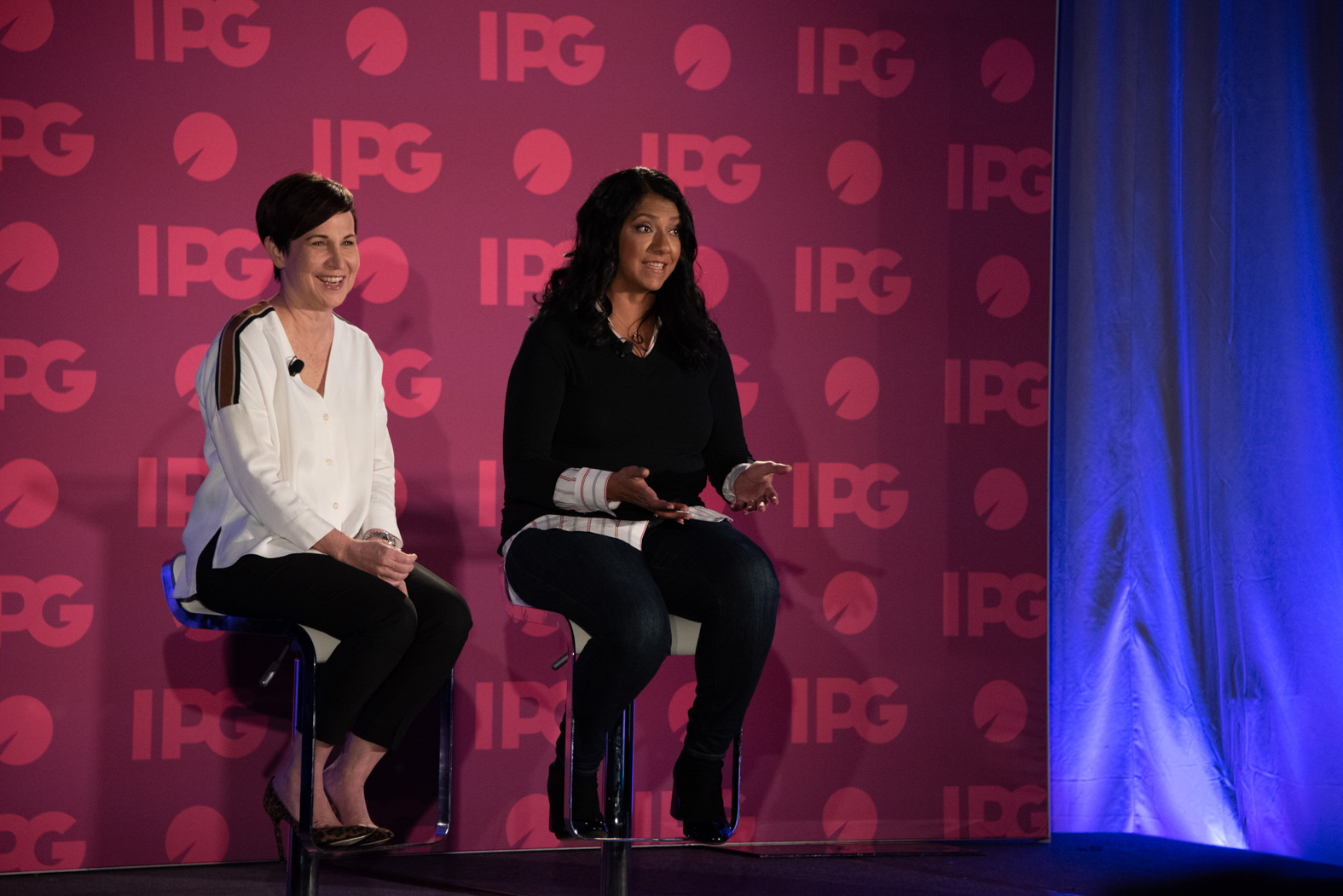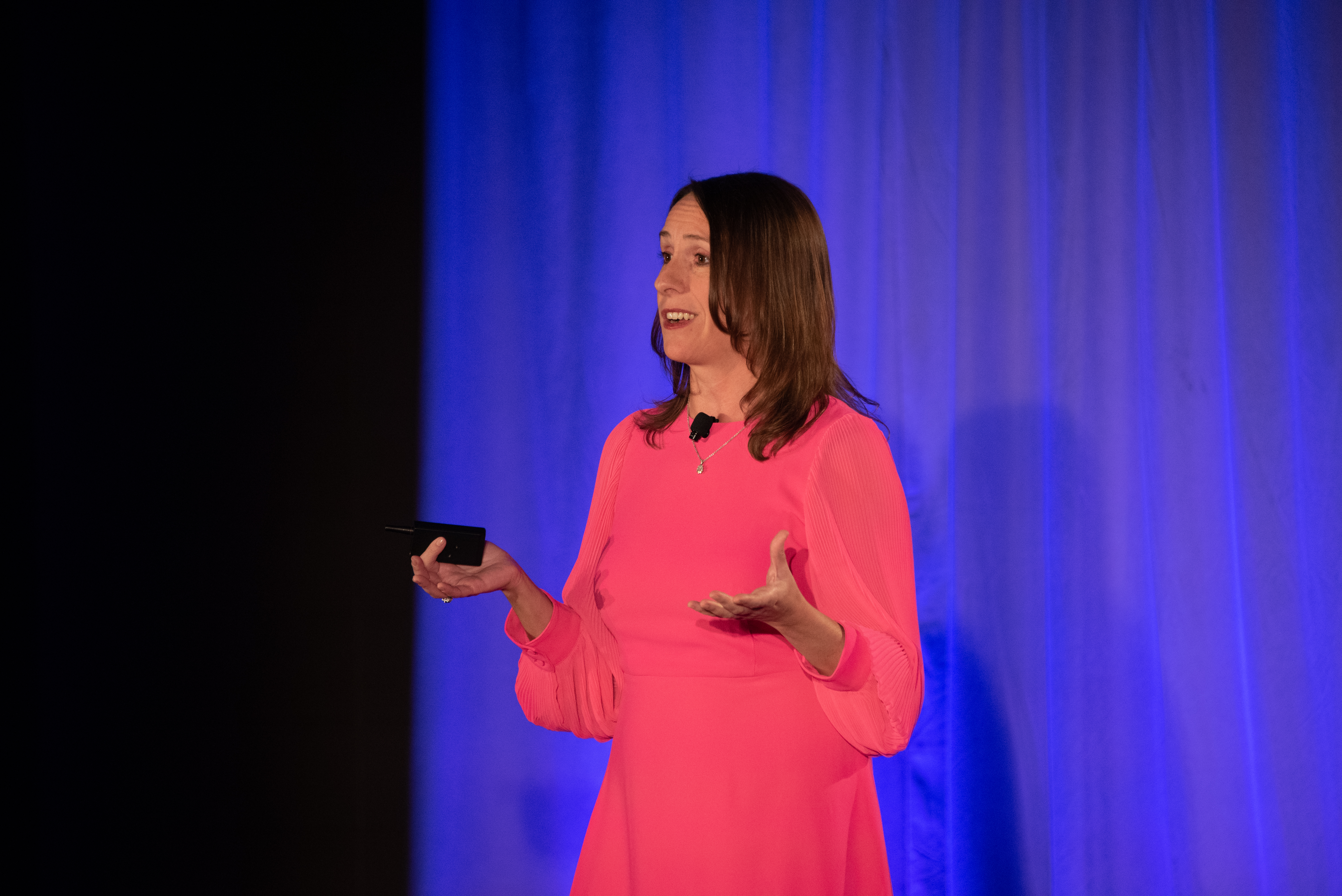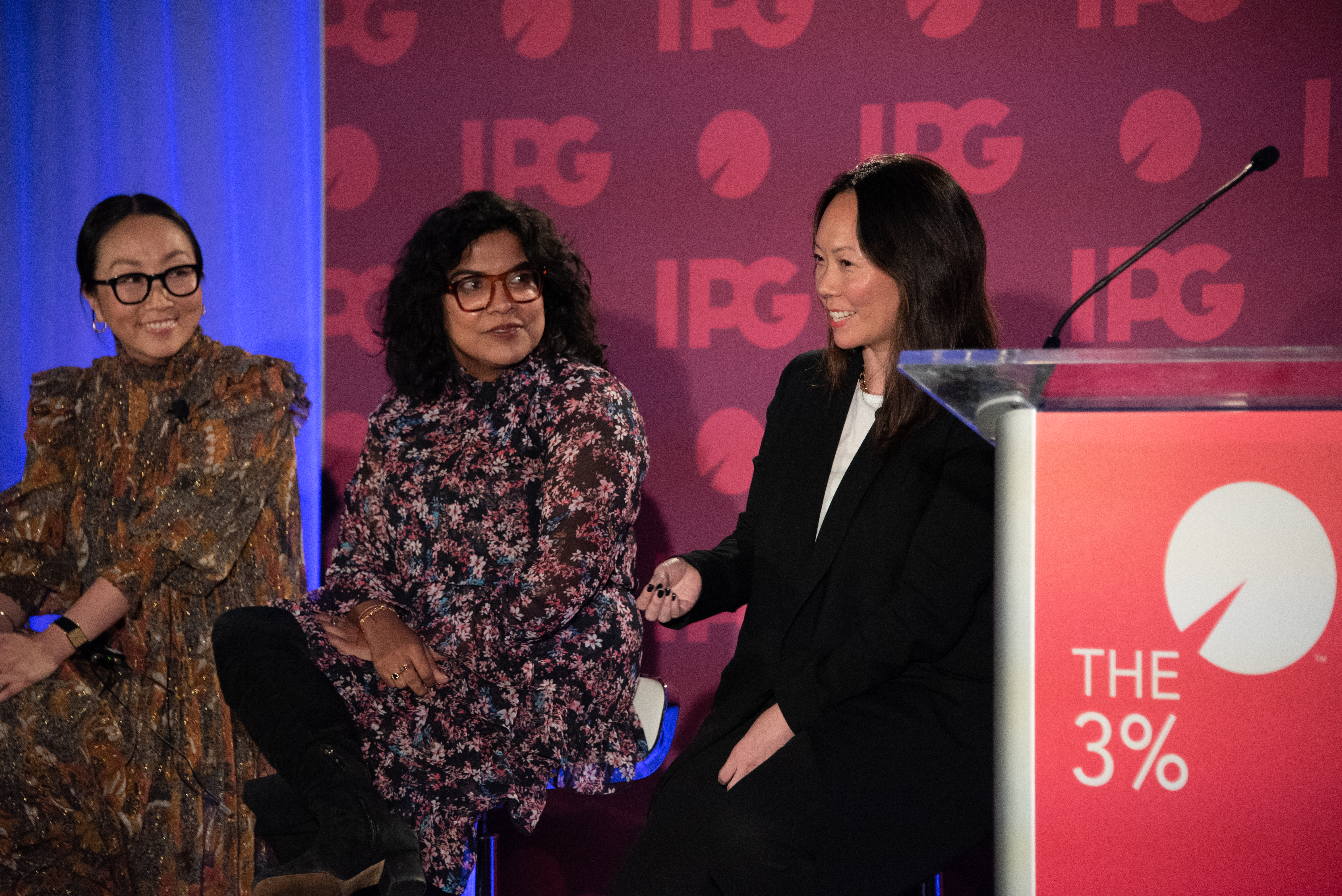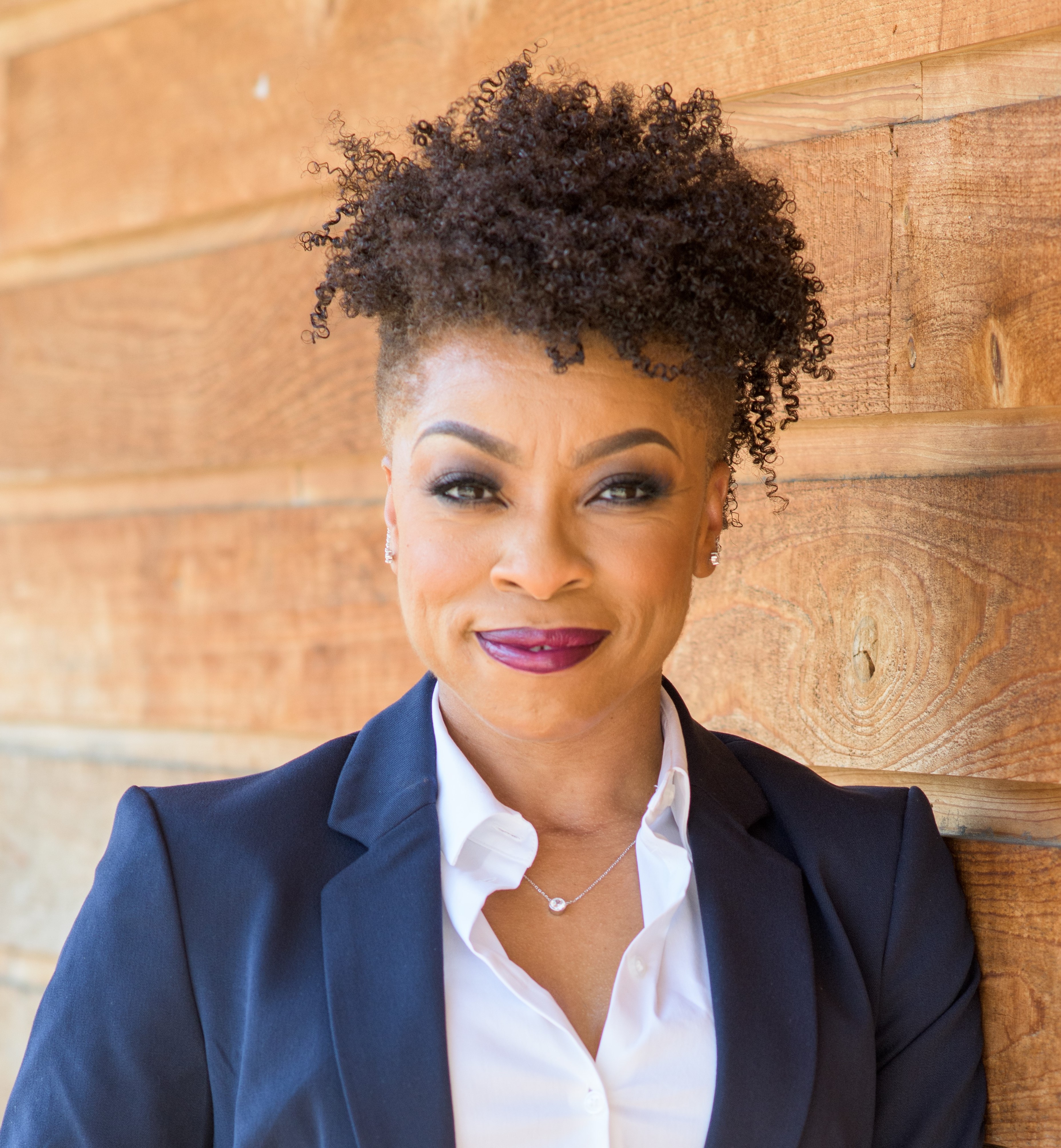
The 2019 Leadership Track: Part 2
A natural communicator, Raegan embodies a lifelong passion for culture. Nearing 15 years of advertising and marcomm experience, she has served multiple brands across various industries – Turner Broadcasting, The Coca-Cola Company, UPS, Chick-fil-A, BlueCross BlueShield, US Marine Corps, Acorn TV, Transamerica, Teavana, and the US Virgin Islands. Raegan has worked for various agencies including J. Walter Thompson, Millward Brown, and Epsilon.
Currently, the first “Lecturer of Cultural Engagement” with the University of Florida’s Department of Advertising, Raegan works to support advertising’s role in shaping the cultural, social, political, and ethical trust between institutions, brands, and audiences. She teaches Advertising Strategy, Cross-Cultural Advertising and Psychology of Advertising, while freelancing as a consultant.
Educationally, Raegan obtained her BA in Communications from the largest HBCU in the country – North Carolina A&T State University. Continuing her credentialing, she received her MMC from the University of Georgia’s renowned Grady College of Journalism and Mass Communication.
THE CANCER JOURNEY: SUPPORTING YOUR PEOPLE THROUGH IT
SPEAKERS: Kristen Flanik, President & CEO, BBDO New York – Kiran Smith, Former CEO, Arnold Worldwide

Honestly, this was the session that had me on the edge of my seat. Two accomplished women, who have led two advertising powerhouses, with a common foe: cancer. Believe me, adland is no different from Hollywood – sickness can be career-killing kryptonite. For a woman (who is already fighting an array of institutional challenges), showing any discernible form of “weakness” often adds rocks to an already less-than-smooth journey. Do you have any real-life issues to manage such as cancer, divorce, sick child, etc.? Many of us would rather battle in silence.
The once packed, standing-room-only audience, had dwindled to a more intimate crowd. In many ways, I wasn’t shocked. Nothing clears a room like cancer! To be fair, this isn’t an arbitrary gathering. This isn’t the session you attend out of mere curiosity nor to be entertained. If you’re here, you know cancer. It’s been you, your sister, your wife, your daughter, your mother, your father, your brother, your son, your best friend, or similarly, your co-worker.
"Cancer chose us; we didn’t choose it."
Why did I attend? I know cancer, too. Colon cancer swiftly took my Mother in 2014. By 2018, papillary thyroid cancer had found me. I made it. She didn’t – not on this side of heaven, anyway. Did I stand and announce myself during the Q&A? No. It’s not necessary. Here, we fellowship anonymously. Not with shame, but out of respect. Your presence means you’re already here and part of our “unchosen” family. Cancer chose us; we didn’t choose it.
As I listened to Kirsten, who was diagnosed with Stage 3 breast cancer – shortly after being appointed as President & CEO, BBDO New York – I understood her resolve to continue moving forward.
“I was scared for myself. I was scared for my family. I was scared for my agency. As daunting as it was, instead of focusing on, ‘Why is this happening to me’ [I decided], ‘What can I learn from this?’”
Kirsten’s education during her cancer battle extended beyond the illness. It was the team-based approach to fighting cancer that has reimagined her own leadership style within the agency.
“Being treated at Memorial Sloan Kettering completely changed me! Watching the WAY they worked [as a team]. In our industry, how many times have we heard someone say, ‘Oh just calm down, we’re not curing cancer!’ In reality, Memorial Sloan Kettering is curing cancer! There’s something we can learn from [them].”
Here are six, tangible lessons Kirsten absorbed from the Memorial Sloan Kettering team:
Always move forward – unapologetically. They do not focus on yesterday. They don’t sit around and say, ‘This medication worked two years ago, let’s keep using it.’ They are constantly evolving. I was [prescribed] a breakthrough chemo pill and all of a sudden, my doctor calls me and says, ‘We have a brand-new medicine that’s been approved and we need to get you on it.’ I [said], ‘What about the breakthrough medicine that I’m already on?’ My doctor [replied], ‘No, no, no; we’re moving on.’
I thought, what if WE [in advertising] were that brave? What if we were that bold? Even when things are going perfectly well with our clients, what if we just paused [and said to our clients], ‘We have new information and data and we want to bring you something new.’ Because if we don’t, somebody else will!
Work the problem – don’t admire it. They don’t wallow in it or get upset about it. [For example] on my fifth round of chemo, I had a really bad reaction and my body completely rejected [the treatment]. They immediately pulled me out of the chair, got me to a dermatologist and an allergist, and by 5PM I was back in the chair. Nobody was defensive, nobody was blaming or pointing fingers – they just worked the problem. That’s what I try to do now; I pull the team together to identify how we’re going to fix [the problem] and all of us together … we just move on. We’re so much more agile and responsive.
No egos; constant collaboration. My oncologist, breast surgeon, and reconstructive surgeon didn’t always agree, but they listened to each other and looked to each other for counsel. It was never about one person being right! The three of them came together and made sure they had enough information to make the most educated decision [possible]. That’s how we have to move forward with our agencies. We cannot have one department that knows everything – that has the end-all, say-all of what we should do. We have to be more collaborative!
Nobody’s perfect. We won’t always have the right answer and we’re vulnerable. That’s what makes the best and strongest partnerships with our clients, when we can all admit: I don’t know; let’s work this out together. When we show up under false pretenses on either side, always pretending that you know and that you’re the expert, you’ll never be able to live up to that. Ever.
How you talk to people matters. We’re all under so much pressure and working harder than we ever have before. Just take that moment to tell someone what a great job they’re doing, that you recognize how hard they’re working, and that their idea was great (even if it didn’t get sold). [It’s about] positive intent. How you show up matters.
Family is a business model. [BBDO] surrounded me with so much love and support. My #1 priority moving forward is the health and happiness of my organization. We’re all just people and everybody has their struggles and things in their life they need to overcome. I had the support of my organization. Not everybody is in that position. It’s inspired me to look around and make sure that I’m listening and know what’s going on [with my team].
Likewise, Kiran, in the process of trying to conceive her second child, was diagnosed with a polyp after an exploratory examination. Unexpectedly, it turned out to be adenosarcoma – a form of uterine cancer more common for someone in their 50s and 60s – not for someone like Kiran, who was in her early 30s at the time of diagnosis. She, too, found the resolve to move forward while juggling a career, marriage, motherhood, and the journey of treatment. That journey provided her with two major insights:
Where do you find your strength from? I was fortunate to have an amazing husband. I also have a phenomenal group of women friends. I had that friend that if I didn’t want to talk about the cancer, she’d show up with a bunch of PEOPLE magazines and wine. The friend that was the cheerleader. They each had their role and I had to let each of them play their role. Because they were going through their own grieving process the same way I was. I had to respect that.
The people I worked with were important. They didn’t have precedent to understand how do you deal with someone who has cancer and how do you support them. This wasn’t common. [At the time] I was with a different company, Shaw’s Supermarkets, and I stayed there for 10 years afterward. It’s not just because I worked with great people, it’s because when I needed them most they stuck by me. They stepped up when I was going to be out for a little while and always let me know I had a place to come back to. And I tried every day to pay it back 10-fold. If you can create an environment for people, it will come back!
While cancer is a routine conversation in social media and the news, it has historically been a whisper within adland. Even as its own talent battle with this monster from various points of view. However, as an audience member courageously shared regarding her journey with cancer: It’s OK to tell people.
Yes. It is.
WHY POSITIVE PSYCHOLOGY BELONGS IN FEEDBACK
SPEAKER: Jen Ostrich, President Ostrich Coaching + Consulting; Co-Founder, Shift Positive 360

Oh, the painful “joys” of feedback! Be it my high school English paper, a stern rebuke from a manager, or even a rolled eye from one of my students – feedback can be such an uncomfortable reality. As a professor of advertising, a woman of color and an ongoing consultant within the ad industry, my entire world revolves around it. At the office, on social media, in the line at Target and even at the barbershop (disclaimer: I sport a jazzy frohawk) various forms of advisement are as routine as my trip to Starbucks! Whether commentary is requested, suggested or “innocently” offered, critique is everywhere these days. It would surprise many to know that academia and adland conduct the feedback process quite similarly. Believe me, that’s not always a good thing.
Jen Ostrich presents the theory that the feedback process is inherently broken. I would agree. In fact, if I were to look at critique through the lens of race, gender, ethnicity, or status, the design flaws are even more apparent and detrimental to career performance. The most obvious design flaws?
- Dishonest/non-factual feedback: i.e., If a colleague is surveyed about a co-worker that is up for promotion, the colleague is more hesitant to offer comments that may lead to the co-worker not receiving the promotion. In this way, promotions may not be equitably earned.
- Always Confidential: i.e., Without knowing who’s providing the feedback (and their relationship to the colleague), previous conflicts, nor any facts/details, it’s challenging to ascertain the “truth” of the critique. Context matters.
- Tends to Focus on the Weaknesses: It doesn’t tell you what to do and how you can improve.
- Lacks social support: We give feedback and rarely circle back to review actionable areas for improvement. If an employee receives various items of concern (without any opportunity to actually resolve the issues) the colleague may feel that their co-workers are against them, instead of for them.
- Delivery flaw: Feedback isn’t being given with enough frequency. i.e., Research shows that 40% of employees are more likely to tangibly disengage from their role if they feel ignored by management. If those same employees are given strengths-based, positive feedback with consistency? Disengagement is drastically reduced to 1%.
Introducing neurological concepts to understand this experience, Jen immediately targets an important element that’s been missing from contemporary feedback models – the mindset of the recipient. In referencing David Rock’s SCARF model, she believes that if any of its five components are triggered during the feedback process, recipients will respond as though their life is being threatened. Just what are those five components?
Status
Certainty
Autonomy
Relatedness
Fairness
Yes, Jen; I will shamelessly agree (and I’m not the only one). An unfavorable conversation with a creative director is enough to conjure up the flashing due date of your next rent or mortgage payment! Truly, a fight or flight response. Here’s the real issue: feedback is often comprised of mistakes, miscalculations, and at times, admonishment from clients. How, then, can managers and co-workers turn these into ‘positives’? Therein lies Jen’s approach:
“We must change feedback to be … constructive, energizing, and effective”
Jen’s “Shift Positive” strategy is designed to address both the design and delivery flaws of the process we routinely experience. The goal is to deliver feedback at its best through five, tangible criteria:
- You trust the intention of the person sharing it with you – truly for your benefit.
- There is context to the feedback – you understand the circumstances.
- You understand what to do rather than what not to do (weaknesses).
- It is timely.
- You have social support going forward to help reinforce improvement.
By implementing tenants of positive psychology, Jen’s team targets errors and missteps by addressing what is positive – what’s helping a community, organization, and/or person to thrive. In other words, what’s working in a situation is just as important as what isn’t. For example, current feedback models aren’t predisposed to acknowledging the relevance of character-building qualities like grit, determination, or resilience. With a new angle, these skills are given just as much weight and brevity as closing deals. From my point of view, positive psychology is as much about constructive critique as it is talent retention. ‘Acknowledgement’ is one of the most important ingredients for maintaining loyalty.
While some would consider this a radical approach, it is best understood by renown global researcher and talent development thought leader, Marcus Buckingham:
“You learn nothing about success from studying failure.”
Now, this is a radical thought for adland! For example, when an agency loses a pitch, there’s generally the posthumous research and discovery process to figure out what went wrong (i.e., WHO did WHAT wrong, if we’re being honest). Like Jen, I couldn’t think of a time that I’d witnessed the same, intense review to figure out what went right. In other words, why was the pitch won? The Shift Positive methodology implements this strategy.
So, how does an organization tangibly shift its feedback process? There are a handful of points to consider to reimagine critique:
Strengths Perspectives – When are your peers most engaged and energized in their duties?
Remove “Weakness” – Triggers the internal negativity bias; it doesn’t tell you how to grow.
Solutions-Focused Questions – Utilize Ask (not Tell) questions, that begin with How or What (Not Why); Generally, when we start a question with Why we tend to get more information about the problem and not a solution.
Desired Outcomes – Visualize the actions you believe would lead to better performance and write them down. They reflect the tangible, measurable steps that are beneficial to feedback.
LESSONS FROM UNEXPECTED LEADERS
MODERATOR:
Grace Teng, Executive Director, Media & Analytics, Zambezi
PANELISTS:
Jiah Choi, Partner, CEO, Anomaly LA
Thas Naseemuddeen, CEO, Omelet
Sandra Nam, Director, Creative Production, Squarespace

Adland markets, promotes, and develops brands that have worldwide recognition. Therein lies the tragic irony – our industry – from academia to Madison Avenue, our people don’t always LOOK like the very consumers we engage. In fact, the visual of our industry has come in just a handful of screened offerings – Mad Men (scripted drama), The Pitch (reality TV/competition), and the widely-known rom-coms What Women Want and How to Lose a Guy in 10 Days. As an African-American, Boomerang showed me my brand dreams were possible. By the time I got there, Black-ish provided free group therapy! Is the humor sometimes cringe-worthy? Absolutely. Is it a lie? Absolutely not.
Walking into this session was groundbreaking. (Though, it really shouldn’t be). If I’ve had a hard time consistently finding me in this business – Asian talent, creatives, and thought leaders have had it no easier. An Asian “IT” expert? Sure. An Asian creative director? I’ll wait … (still waiting). While the Crazy Rich Asians empire has created a much-needed space in Hollywood, it’s been long overdue. The Joy Luck Club shouldn’t be the sole reference. Adland is no exception.
Each of these women are helming international companies from the C-suite. For me, the joy is in the visual. They are here – owning their space. As women, unapologetically Asian. Respect is required; validation not needed. Keenly aware of their cultural importance to advertising at-large, their thoughts on diversity and the significance of cultural role models are best stated in their own words.
On Representation:
Grace: I remember when I first got into the business, feeling so lost, [thinking] is this for me? I think a common theme is that in the beginning, you don’t see much representation. Early, in my career, I saw a news article with a [picture] of an Asian, PR agency CEO. I remember thinking, “It’s possible!”
Thas: What can leadership look like? That’s been occupying a lot of my free time. How can I help make a difference in this industry so that we’re not unusual? That we aren’t the leadership that’s totally unexpected [in terms of race and gender]. That feeling of being ‘different’ can be really empowering, but also scary. It’s an interesting thing not always seeing what you want to become.
I was a strategist that grew up in creative agencies. Everyone is a cool British planner and they’re mostly white dudes. Honestly, they were incredible mentors to me and they really stuck their necks out for me. But the reality is that I wasn’t part of ‘the club.’ I knew there was a moment when that club wasn’t mine.
The opportunity that I have with Omelet is to really be me. I talk the way I talk; I dress the way I dress; this is who I am and I never want to change that. We need different kinds of leaders and role models in [the industry].
Sandra: I grew up in white suburbs, so I’ve adapted to being one of only a few Asians in the room. When I joined advertising, I was used to being [at times] the only one in the room. In agencies everywhere, they’re pretty white. For a while, I thought I could never be head of production because creatives are usually male-dominated. When I moved to NY, it changed. I saw a lot more women as heads of production. I believe as the world has become more digital my specialty’s been translating traditional to digital. Google paved the way for me; I didn’t see a lot of opportunities for me in agencies. I saw women, I saw fellow Asians. Google opened my mind.
How has your first-generation immigrant background influenced you as a leader?
How has it helped, how has it hindered?
Jiah: Any kid of immigrant parents will tell you – there’s a sense of obligation for craving a better life than your parents had. There’s also ‘Asian Guilt’ that says ‘you have to do better’ and it’s a real thing that runs thick! The con is that the creative arts have not been historically known as a way to earn money. For children of immigrants who left it all behind for a better life … you’re usually encouraged to pursue white-collar careers because there’s more predictability. Your parents didn’t push you to become an artist, photographer, etc. Now, we live in a culture that celebrates creativity. Some of my nieces are now in the industry, and they are seeing the potential longevity and opportunity.”
Thas: I was the kid [being teased] with one eyebrow who smelled like curry (audience laughter). I think what it teaches you is resilience that you don’t get at university or your workplace. Being strong and confident in who you are comes from some of those moments. My parents worked their butts off to make sure I had the best education. I want to spend that privilege responsibly. I can demonstrate that through the work. At the end of the day, the work is what matters! My upbringing really enforced that.
The cons? My mother is still petitioning for me to go to medical school! (audience laughter). You can only fight who you are for so long. There’s this inherent part of you that needs to be satiated by different creative interests. The history of [Asian] culture wants that predictability for you. I totally understand it! But this is the life that [I’ve] chosen.”
What advice would you pass on?
Sandra: As a person of color, you feel that frustration and take that energy and fuel it into something. I got to a place where I was upset that I wasn’t at the table nor in the room. Because if you’re not at the table nor in the room, you can’t share your ideas with other people or change the dynamics – how people are hired, how creative is made, etc. Don’t be afraid to be a decision-maker. I think I shied away from it for a while, thinking it was more comfortable to be a doer. Now, being a creative director, it’s been incredible to be in the room. I can affect casting or a deal and make a huge difference.”
Tas: Find your tribe; find your people. You need people that can be there for you on the low, scary days. Community is what will propel you. Though we didn’t coin the phrase, at Omelet we say: Make Space, Take Space. Really, the ideas of making space for other voices. One of the lessons you learn – when you’re the CEO that people don’t expect – is to make sure other people have the opportunity to get to where they need to be.”
Jiah: First, there is no playbook for leadership. Why? Leadership at one organization, is very different than leadership at another organization. Some of the best leaders that I’ve been fortunate to work with are clear on their values and apply those values and their experiences to make the right decisions for their teams and the way they want to grow their businesses.
Secondly, get really comfortable with ambiguity. For me, this has really been a theme for the last 10 years of my career. I would’ve never thought I’d move to Atlanta and work for Coca-Cola in Atlanta because it was radically different from the experience that I had at Chiat Day in LA. Becoming a CEO wasn’t on my radar. You guys are all going to have to figure it out based upon each circumstance.
Lastly, you’ve got to just keep at it. Then, one day you’ll [know] – I’ve got this!
WRAPPING UP
Though it’s challenging to simplify these candid conversations, I’m confident in my assessment:
WE ARE THE WORK.
Whether as a support role for team members experiencing personal challenges, finding a more actionable way of evaluating our performance, or creating space for needed voices – advertising is all about the audience. WE are the consumer. WE are the barometer. WE are the changemakers. WE are the target audience before we even develop a campaign or strategy for a client.
The operative word here … is WE.




